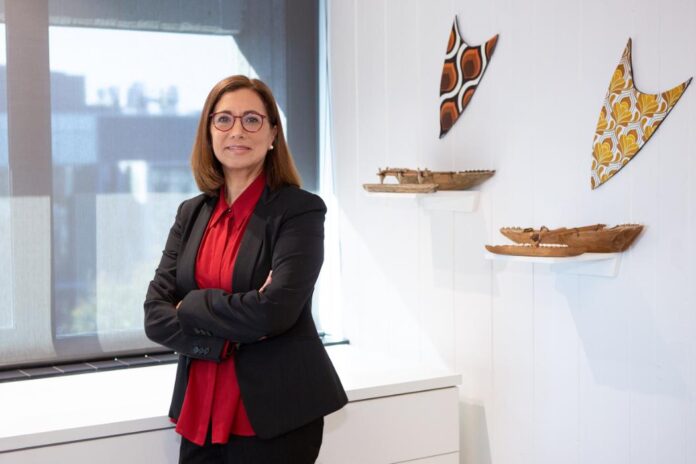Source: University of Canterbury
15 June 2021
New Zealand’s first annual hui on countering terrorism and violent extremism, He Whenua Taurikura, is being held in Christchurch this week.
-
University of Canterbury Vice-Chancellor Professor Cheryl de la Rey spoke at New Zealand’s first hui on countering terrorism and violent extremism, He Whenua Taurikura, in Christchurch this week.
Some of the most powerful and influential people in New Zealand are speaking at the event this week, including Prime Minister Jacinda Ardern, director-general of security Rebecca Kitteridge, police commissioner Andrew Coster, and Anjum Rahman of the Islamic Women’s Council.
While the Prime Minister is due to give an address on Wednesday 16 June, Christchurch mayor Lianne Dalziel spoke at the welcome reception on Monday night, as did the University of Canterbury Vice-Chancellor, Professor Cheryl de la Rey.
Excerpt from Professor Cheryl de la Rey’s speech at He Whenua Taurikura:
The devastating terrorist attacks of 15 March 2019 left many of us searching for answers. More than two years later, there are many questions that remain unanswered.
In response to the recommendation of Royal Commission of Inquiry into the Attacks we have gathered together in this inaugural national hui on countering terrorism and extremism to work together to find answers and solutions.
One of the key objectives in our agenda is to discuss how we may establish a programme to fund independent New Zealand-specific research on the causes of, and measures to prevent, violent extremism and terrorism.
With research being a core mission of our universities, universities have a key role to play in ensuring that this objective is met. The universities of Aotearoa have strong academic capacity to make meaningful contributions and here in Ōtautahi Christchurch, Te Whare Wānanga o Waitaha | the University of Canterbury, in partnership with mana whenua, has research capability that is deeply connected to our communities.
It is important to acknowledge that we are not starting from zero as there is already a reservoir of research published by our universities, that we can draw upon to inform our kōrero. Hence, it is pleasing to recognise the many academics participating in this hui.
Although there are a range of institutions that do research, universities are unique institutional types, as research in universities is intricately linked to our responsibility for education.
Terrorism and extremism of any type is in fact antithetical (contradictory) to the very nature of universities and our academic missions which is fundamentally about open-mindedness, inquiry and developing knowledge in its multiple forms and perspectives.
Universities bring together students and staff from a range of walks of life, different generations, different ethnicities, varying perspectives and academic disciplines to learn and to research.
Our commitment to diversity is backed by a substantial body of research in psychology, economics, computer science and many other fields that shows that diversity and inclusion in our approaches to tackling complex challenges produces better outcomes compared to homogeneity.
Why is it then that we continue to struggle with diversity and inclusion, and hate crimes, racism and extremism continue? Just last week our local media reported a racially motivated attack on two school students.
There is clearly a need for more research on the broad question of how we build social inclusion and social cohesion and thereby contribute to the wellbeing of all in our communities.
Countering extremism, terrorism and ethnic hatred is what many scholars describe as a ‘wicked problem’. In contrast to so-called ‘tame problems’ (those usually with clear definition), ‘wicked problems’ are those that cannot be tackled by singular, linear approaches to research and require integration across scales and perspectives. At this hui we have a unique opportunity to co-create new approaches to the complex tangle of questions and issues that warrant further research.
As we respond to the Royal Commission’s recommendations, it is important that we that go beyond the question of what is to be researched, to include reflections on how we conduct research, from whose perspectives and in whose interests.
Moreover, it is imperative that we enlarge the scope of our considerations beyond direct violence and extremism by casting within our lenses insidious forms of violence that may be built into the fabric of everyday behaviours and structures in ways that undermine people’s access to basic needs and have a corroding impact of their sense of worth and wellbeing.
By bringing together central and local government agencies, communities, civil society, the private sector and researchers, this annual hui gives us a unique opportunity to build relationships, share understanding and plan how we may work together to counter violent extremism and terrorism.
To inspire us all. I find myself reaching back into history recalling the work of political philosopher Franz Fanon: “Humanity is waiting for something other from us than … an imitation … if we want humanity to advance a step farther, if we want to bring it up to a different level … then we must invent and we must make discoveries. … For … ourselves and for humanity … we must work out new concepts, and try to set afoot a new [human].” (Fanon, 1963/1990, p. 254).



